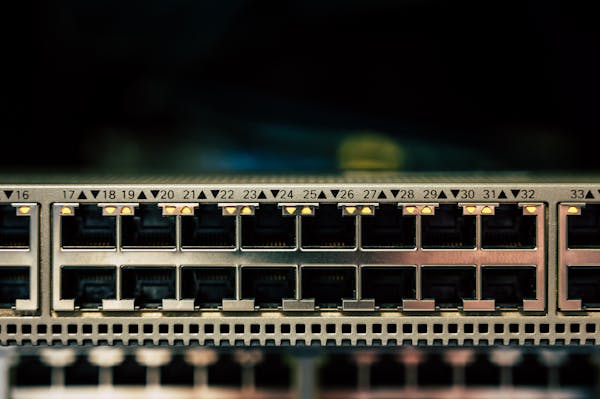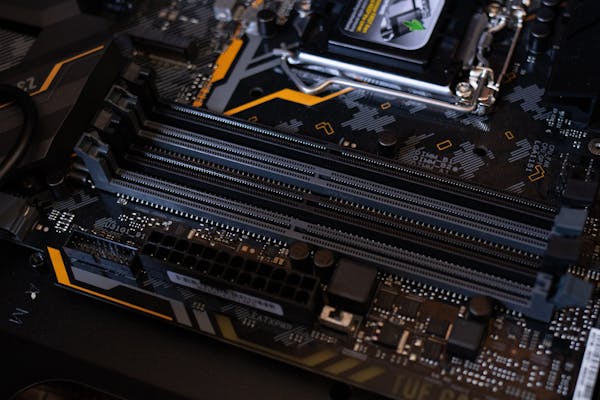Source article: click here (4G rotating proxy)

Delving into Mobile 4G Proxies
With the increasing need for online anonymity, mobile 4G proxies have gained prominence for maintaining online privacy.
Defining 4G Rotating Proxies
These proxies leverage mobile networks to provide changing IPs to users. Unlike static proxies, they change IP addresses periodically, reducing detection risks.
Mechanism Behind 4G Rotating Proxies
Once initiated, users receive a 4G network IP. These IPs change after specific durations or actions, making tracking difficult.
Why Opt for 4G Rotating Proxies
- Improved Privacy: Dynamic IP rotation masks real IP addresses.
- Overcoming Location Barriers: Changing IPs enable viewing of geo-blocked sites.
- Lowered Detection Rates: Frequent IP changes circumvent anti-bot measures.
Applications of 4G Rotating Proxies
- Web Scraping: Rotating IPs prevent scraping blocks.proxies facilitate automation.
- Competitor Analysis: Changing IPs monitor competitor strategies.
- o Consider}
When opting for a 4G rotating proxy, consider:
- Diversity of IP Addresses: A larger pool enhances anonymity.
- Switching Mechanisms: Determine if the service has fixed durations.
- Regional Availability: Access to multiple regions broadens usability.
Potential Challenges
- Cost Implications: 4G proxies can impact budgets compared to other types.
- Connection Stability: Mobile networks may affect consistency.
- Ethical and Legal Considerations: Ensure usage avoids illicit activities.
Conclusion
Mobile 4G proxies offer unparalleled anonymity, positioning them as essential tools in modern internet usage.
Understanding the Technical Mechanisms of Mobile 4G Proxies
Amidst the landscape of digital security, 4G rotating proxies have gained prominence for maintaining user anonymity.
What Are 4G Rotating Proxies?
These proxies leverage cellular data connections to provide changing IPs to users. Unlike static proxies, they offer dynamic IP rotation, enhancing anonymity.
How Do They Work?
Once initiated, the proxy server assigns a mobile IP. These IPs are switched periodically, hindering surveillance.
Why Opt for 4G Rotating Proxies
- Enhanced Anonymity: Dynamic IP rotation masks real IP addresses.
- Accessing Region-Locked Content: Changing IPs facilitate unrestricted browsing.
- Lowered Detection Rates: Frequent IP changes avoid detection systems.
Applications of 4G Rotating Proxies
- Information Gathering: Rotating IPs maintain access to target sites.
- Multiple Account Handling: Dynamic proxies facilitate automation.
- Competitor Analysis: Changing IPs simulate diverse user locations.
Selecting a Reliable Provider
Before selecting a provider, consider:
- Number of Available IPs: A larger pool reduces repetition.
- Switching Mechanisms: Determine if the service rotates per request.
- Geographical Coverage: Access to multiple regions broadens usability.
Limitations to Be Aware Of
- Cost Implications: 4G proxies may be pricier compared to other types.
- Performance Issues: Mobile networks may affect consistency.
- Regulatory Concerns: Ensure usage avoids illicit activities.
Summing Up
Mobile 4G proxies offer unparalleled anonymity, establishing their importance in modern internet usage.
The evolving internet ecosystem, maintaining online privacy and avoiding blocks has become more necessary than ever. Scrapers, social media managers, and data analysts often turn to proxy servers to change their IPs. Among these, 4G LTE rotating proxy servers have become game-changers.
What makes them better or worse than other options like static proxies? Let’s explore the differences.
== What is a 4G Rotating Proxy?
A 4G mobile proxy is a proxy that routes internet traffic through a real mobile device. These proxies rotate IPs at custom timeframes or upon request, mimicking human behavior and eliminating the risk of bans or blocks.
== Main Proxy Types
Let’s look at the key proxy types before comparing:
1. **Datacenter Proxies**
– Fast and affordable, but easily detectable.
2. **Residential Proxies**
– Use IPs assigned to real homes. More reliable, but slower and costlier.
3. **4G Mobile Proxies**
– Use real SIMs on LTE networks. Best for scraping, bots, social media.
4. **SOCKS5 Proxies**
– Protocol-based, flexible, used for various apps, not just HTTP.
== Comparison Table
| Feature | 4G Rotating Proxies | Datacenter Proxies | Residential Proxies | SOCKS5 Proxies |
|————————|———————|———————|———————|—————-|
| IP Source | Mobile Network (SIM)| Data Centers | Home IPs | Varies |
| Rotation | Yes (Frequent) | Sometimes | Optional | Manual |
| Ban Resistance | High | Low | Medium | Depends |
| Speed | Medium | High | Low-Medium | High |
| Price | High | Low | Medium | Low-Medium |
| Target Use | Social, Ads, Bots | General Scraping | E-commerce, Research| General |
| Block Detection | Low | High | Medium | Medium |
== Technical Advantages of 4G Rotating Proxies
Why are 4G proxies so powerful?
– **Real Device Trust**: Websites trust mobile IPs more than others due to carrier NAT and wide user pools.
– **Shared Reputation**: IPs are shared across many users, making banning a single user risky.
– **Geo-targeted Mobile Carriers**: Rotate between networks in real U.S. cities or countries.
– **Dynamic Rotation**: Can rotate every few minutes or after each request.
– **Bypasses Captchas**: Mobile IPs are less likely to trigger captchas or challenge verifications.
== Where 4G Proxies Win
Let’s cut to the chase— if you’re scraping Google or LinkedIn, nothing works better than a solid 4G proxy.
– Facebook and Reddit limit data center abuse.
– Web scraping? You’ll face fewer issues.
– Ads management across banned zones? Done.
== Where They Fall Short
– **Cost**: They’re way more expensive.
– **Speed**: Slower than static datacenter options.
– **Limited Threads**: Some providers limit concurrent usage.
== SOCKS5 vs 4G: Protocol vs Behavior
SOCKS5 proxies are great tools. But they don’t have native rotation.

| Attribute | 4G Proxy | SOCKS5 Proxy |
|———————|——————–|——————–|
| Protocol Type | HTTP/HTTPS | SOCKS5 (All apps) |
| Rotation | Yes | Manual |
| IP Trust Level | Very High | Medium |
| Use Cases | Social, Ads, Bots | Torrenting, Apps |
== Use Cases Side-by-Side
**4G Rotating Proxies:**
– Social Media Management
– Mobile Ad Verification
– SEO Scraping
– Sneaker Bots / E-com Testing
– Marketplace Automation
**Datacenter Proxies:**
– High-volume scraping (non-sensitive)
– Speed-demanding tasks
– Price-conscious campaigns
**Residential Proxies:**
– E-com price intelligence
– Research tools
– CAPTCHA-heavy targets
**SOCKS5 Proxies:**
– Application-level traffic routing
– Anonymity over torrents
– Bypassing firewalls
== How to Choose the Right One?
Each proxy has a time and place. Here’s how to choose:
– Need speed? Go datacenter.
– Need trust and stealth? Go 4G mobile.
– Need app-level routing? Go SOCKS5.
– Need wide IP pools without rotation? Try residential.
== Future of 4G Rotating Proxies
With AI detection systems growing smarter, only carrier networks are keeping up. We’re seeing:
– 5G proxy rollouts in testing
– Smarter rotation algorithms
– Integration with automation platforms like Jarvee, NextPost, Puppeteer
== Final Verdict
If you want the closest thing to human, 4G rotating proxies are your best bet. For any campaign that’s stealth-heavy or bot-powered, it’s worth the investment.
== Spintax Conclusion
Whether you’re managing client accounts, investing in the right proxy is a make-or-break decision.
They come with a premium, but the benefits outweigh the cost.
https://www.fortinet.com/resources/cyberglossary/proxy-server
https://en.wikipedia.org/wiki/Proxy_server
https://support.microsoft.com/en-us/windows/use-a-proxy-server-in-windows-03096c53-0554-4ffe-b6ab-8b1deee8dae1
https://www.reddit.com/r/explainlikeimfive/comments/1dfgepb/eli5_what_is_a_proxy_server_and_why_would_i_as_an/
https://surfshark.com/blog/proxy-server


















